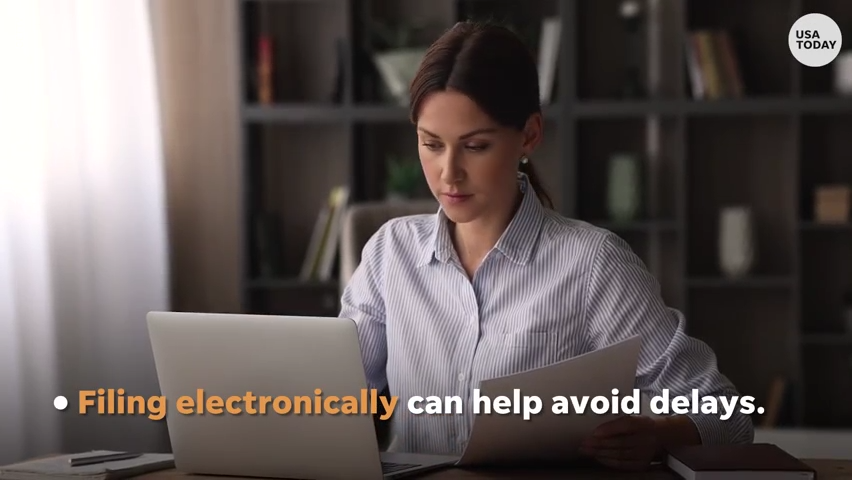Can you negotiate your tax bill? Maybe. Here's what you need to know first.

Many people who file a tax return end up with a refund on their hands. But what if you happen to land in the opposite situation?
There are plenty of reasons why you may get stuck with a tax bill, and a large one at that. If your income increased a lot last year, or you did a lot of work on the side and didn't have taxes taken out of those earnings, then you could end up owing the IRS a lot of money on your 2021 return. Or, perhaps you sold investments in your brokerage account at a profit last year. That, too, could contribute to a large tax bill.
If you owe the IRS a whopping sum and don't have enough money in the bank to pay it by the April 18 tax deadline, worry not. For one thing, the IRS will almost always allow you to get on an installment plan and pay off your tax debt over time. But in some cases, it may also be possible to negotiate your tax bill downward. Here's what you need to know.
SUBSCRIBE TO OUR NEWSLETTER: The Daily Money delivers our top personal finance stories to your inbox
Will you get a break on your tax debt?
If you have a tax bill you can't pay, then you may be able to negotiate the sum you owe. But before we go any further, let's set some expectations: Most of the time, the IRS will not let you off the hook when you owe money on your taxes. But in more extreme situations, the IRS might agree to an offer in compromise.
An offer in compromise is an agreement in which you and the IRS settle on a lower tax bill than what you initially owe. For example, say you owe the IRS $20,000. If you can't pay that sum, the IRS might agree to reduce your tax debt to $10,000 and forgive the remaining $10,000.
But qualifying for an offer in compromise isn't easy. To do so, you must prove a couple of things:
- That you don't have the income or assets to pay that bill, and that situation is unlikely to change
- That paying your full tax bill will constitute a major financial hardship for you
So, let's say you owe the IRS $20,000 but you only have $300 in your bank account, you don't own a home, and you already work 60 hours a week at a minimum wage job. Based on those circumstances, it's fairly easy to make the case that a $20,000 tax debt just isn't payable for you. Based on this situation, it's possible to argue that paying off a $20,000 tax debt would constitute an extreme financial hardship.
On the other hand, let's say you owe that $20,000, but you also have a savings account balance of $10,000 and own a home that you have $50,000 worth of equity in. Let's also assume you earn $60,000 a year and work in a field where your wages are likely to hold steady or increase. In that case, the IRS might argue that your tax bill can, in fact, be paid off over time without causing you an undue hardship.
HOW DO YOU GET A TAX EXTENSION? Do you still have to pay now? Your questions answered.
Don't expect the IRS to cut you a break
While it's possible to ask the IRS to agree to an offer in compromise, unless you're in an extreme situation, the agency will most likely say no. But remember, you can generally pay off your tax bill over time, so if you owe the IRS a large chunk of money, don't panic.
Chances are, you'll be able to get on an installment plan that leaves you with reasonable monthly payments. And as long as you keep up with that plan, you won't be considered delinquent on your tax debt. That's important, because the IRS can garnish your wages if you don't make good on the taxes you owe. Stick to your installment plan, and that's an unwanted fate you can avoid.
WORKED REMOTELY IN 2021? Here's what you need to know.
Top credit card wipes out interest
If you have credit card debt, transferring it to this top balance transfer card can allow you to pay 0% interest for a whopping 18 months! That's one reason our experts rate this card as a top pick to help get control of your debt. It'll allow you to pay 0% interest on both balance transfers and new purchases during the promotional period, and you'll pay no annual fee. Read our full review for free and apply in just two minutes.
We're firm believers in the Golden Rule, which is why editorial opinions are ours alone and have not been previously reviewed, approved, or endorsed by included advertisers. The Ascent does not cover all offers on the market. Editorial content from The Ascent is separate from The Motley Fool editorial content and is created by a different analyst team.The Motley Fool has a disclosure policy.
The Motley Fool is a Paste BN content partner offering financial news, analysis and commentary designed to help people take control of their financial lives. Its content is produced independently of Paste BN.